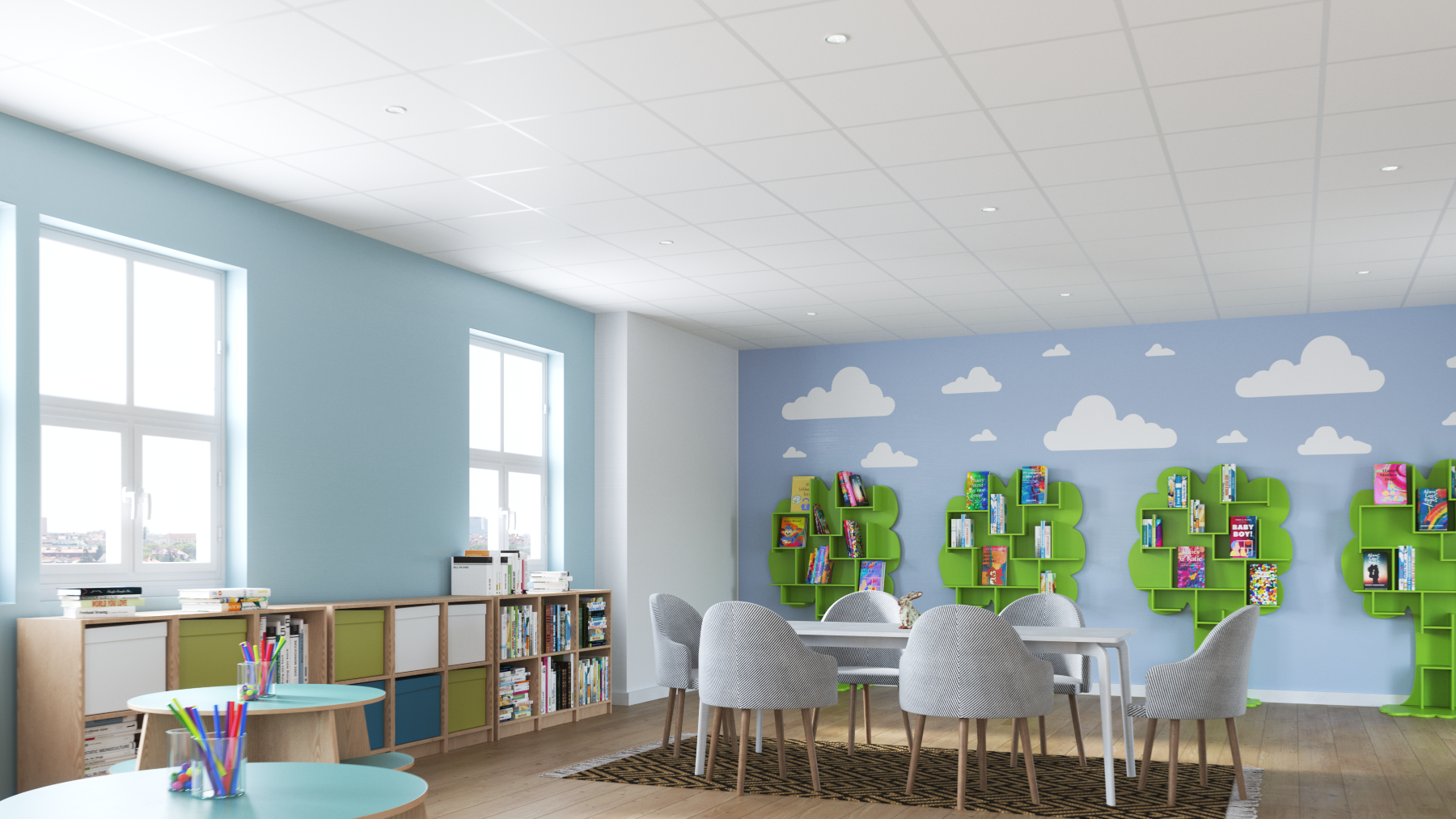Sound advice: limiting noise annoyance in buildings
When it comes to designing spaces with optimal acoustics, the choice of ceiling materials is often critical. To enable simple comparisons between differing acoustic qualities, products are often classed on a scale from A to E, with A-rated products having the highest-rated sound absorption performance. However, it is often misunderstood that Class A sound absorption, while holding the highest rating, always offers the best acoustic solutions.

What is Class A Sound Absorption?
Sound absorption is the process by which sound waves are reduced in intensity as they encounter an absorptive material, such as a ceiling tile. Standards are set out in EN ISO 11654, and the absorption value is expressed as a weighted single figure (αw), with 0.0 being no sound absorbency and 1.0 being 100%. If a product has αw 0.9 it absorbs 90% of the sound and belongs to Class A, so in theory, Class A would often seem like the best solution for a project where acoustics were important. However, this is not always the case, and with each project’s unique acoustic requirements, it is important to consider what class sound absorption is best to achieve the desired outcomes.
Applying Sound Absorption Classes
Understanding the applications of different sound absorption classes is important. There are environments where the highest sound absorption class would be the most beneficial, for example, large, high-volume places where silence is important, such as school classrooms, sports halls, concert venues, cinemas, theatres and recording studios.
However, extremely high sound absorption isn’t always the most effective answer. Sometimes, it can make the wrong environments acoustically dead and flat, making occupants uncomfortable and uneasy. For example, if you are sitting in a restaurant, while you do not want it to be overbearingly loud, you still want some acoustic feedback to add to the overall liveliness of the setting.
Tailored Solutions with Zentia’s Versatile Product Range
Zentia recognises that one size does not fit all, and offers a range of different acoustic solutions, with its product families covering a spectrum of sound absorption classes. This diversity allows for more tailored ceiling system solutions that meet the precise requirements of any project, ensuring an optimal balance of sound absorption and comfort for occupants.
- Prestige hA+ – The Prestige hA+ is Zentia’s most sound absorbent suspending ceiling tile, rated Class A for sound absorption with 1.00 αw, it is ideal for areas that require a strong dose of calm and quiet such as libraries and healthcare settings.
- Oplia hA – The Oplia hA is rated Class A for sound absorption, providing a suitable specification for open plan areas such as contact centres and libraries where low amounts of acoustic feedback are required for quietude.
- Oplia hA+ – The Oplia hA+ tile is rated Class A for sound absorption, and is a bright white ceiling tile with 85% light reflectance, improving interior light levels and overall wellbeing. It is particularly useful in SEN areas within schools.
- Aruba – The Aruba tile family still offers outstanding acoustic performance, combining Class C sound absorption with a sound attenuation level of 34 dB, meaning it helps to control background noise level while allowing sound to travel. It is suitable for environments such as high end office spaces and hotel reception areas.
When creating effective and comfortable spaces, choosing the right sound absorption class is paramount. Zentia’s commitment to offering a diverse range of products ensures that you have the flexibility to make choices that seamlessly align with your project’s specific needs. By exploring the nuances of sound absorption classes and leveraging Zentia’s expertise, you can elevate the acoustic experience of any space.
If you would like to learn more about creating healthy acoustic environments, sign up to our RIBA-Approved CPD here.